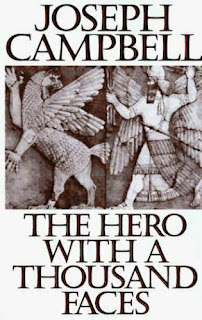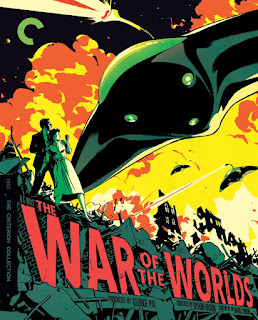The first result of these efforts were published a while ago, like I said. It may even be possible to level the charge that I what wrote doesn't even amount to a review so much as an informal essay critique, one limited solely to Bernheimer's introduction to the entire collection. My only defense for going that route was based on the fact that I still think Bernheimer's thoughts on the current state of myths in contemporary life is flawed at its core. She seems to think that its impossible for anything so ancient to survive in whatever the modern scene happens to be, that all myths are doomed to oblivion in the inevitable march of progress. Or at least that's what I took away from her editorial introduction. My own take on that is pretty much the opposite, however. I think all the best myths have a way of maintaining their own staying power. It's like they one day take on a life of their own, and live on in the imaginations of new generations. It appears to be a form of pop-cultural osmosis that is able to transfer all these old legends down through the ages, regardless of era, or zeitgeist. If that weren't the case, then the content of Bernheimer's own anthology would probably never have been published at all.
What that says to me is that the main reason the figures of Greco-Roman or Norse folklore are able to survive and thrive in the 21st century is because more than anything else, they've managed to find universal forms of expression. What I mean is something like this. In Danse Macabre, Stephen King once opined that what a good work of Horror fiction is looking for are what he called the "phobic pressure points" of the audience (4). It's that innermost place where you live, and the good work of Horror is meant to play on those pressure points like a well tuned harp. I think it's just possible to argue that a similar, yet differing process plays out in the case of all the classic myths. The difference is rather than anything "phobic", what myth in general plays upon might be referred to, in a Jungian sense, as "perrenial pressure points". These are the rest of the stock responses to be had in any well told story.It's the part of our mind that responds to hopes, dreams, wishes, and wonders, in addition to the occasional shock of horror. These "pressure points", or responses, are so universal as to permit the myths that create them an easy level of translation and understanding from one generation to the next. It's a phenomenon that guys like Jung, Joseph Campbell or J.R.R. Tolkien spent their whole lives studying. Sure it classifies them as a bunch of hopeless nerds, and yet that just begs the question. How come everyone remembers their names, along with all or most of the myths they either helped create or translate for future readers? I think a better way to explain the current state of myths in the contemporary scene is that all of them are there, on the table, for the asking. The key thing that determines which myths receive the most prominence at any given moment depends on the particular direction the zeitgeist, or culture, is headed, or rather where it directs its perceptual lens. It's a process that always seems to be a little all over the place at once. Hence Bernheimer can get her collection of reworked mythological motifs published, and Dave Lowery can win acclaim with The Green Knight.
In that sense, Bernheimer's concerns about the health of myths in modern society seems greatly exaggerated. The good news is that none of this really matters for the actual contents of her anthology. If Bernheimer is wrapped up in questions of the sustainability of myth in her duties as editor, the writers who have agreed to be a part of her collection are burdened by no such identity crisis. Each of them to an artist has enough experience under their belt to realize that myth is a constant source of inspiration for their work. As such, all they have to do is sit down at the writing desk, and then start digging for treasure. That's why I get the sense that contributors like Sabina Murray have a much clearer view of things, and as a result are having a lot more fun with this gig than Bernheimer seems capable of. I don't know what to say to any of that, other than to note an irony when I see it. That just leaves us with Murray herself, and the work of hers that is on the docket for review.











